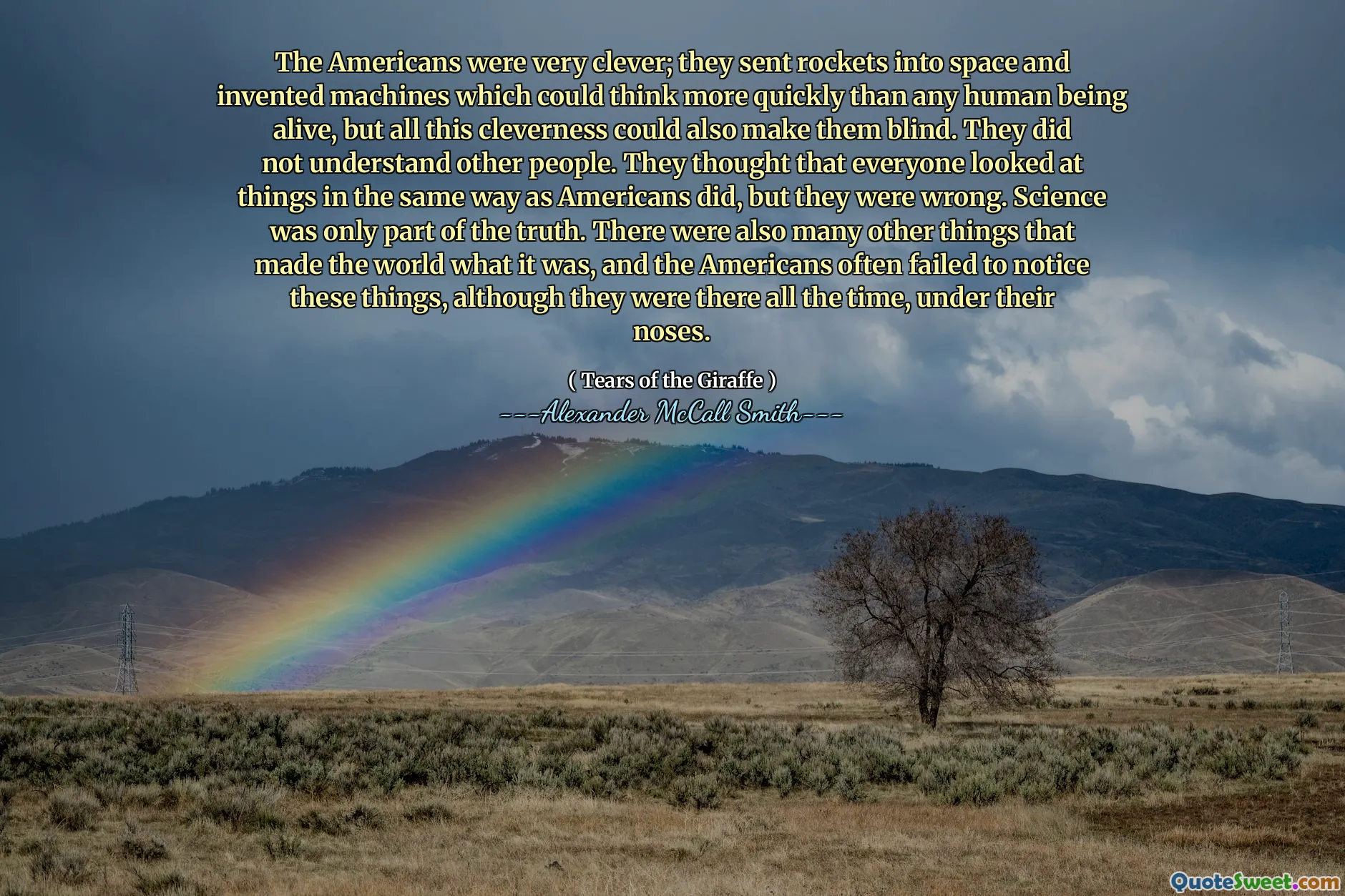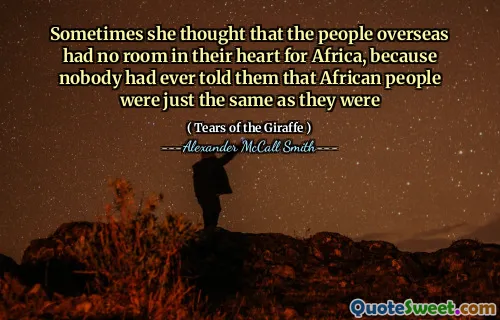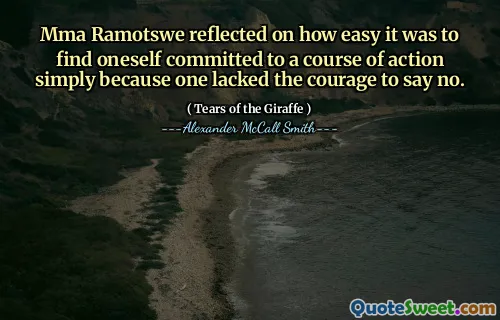
The Americans were very clever; they sent rockets into space and invented machines which could think more quickly than any human being alive, but all this cleverness could also make them blind. They did not understand other people. They thought that everyone looked at things in the same way as Americans did, but they were wrong. Science was only part of the truth. There were also many other things that made the world what it was, and the Americans often failed to notice these things, although they were there all the time, under their noses.
The quote highlights the American ingenuity in technology and space exploration, showcasing their remarkable achievements. However, it also points out a significant flaw: their inability to comprehend diverse perspectives. The author's observation suggests that this overemphasis on scientific advancement may lead to a form of cultural myopia, where Americans assume that their worldview is universally shared, missing the richness of other cultures and ideas that exist around them.
This critique emphasizes the importance of understanding and appreciating different viewpoints beyond scientific accomplishments. It suggests that while innovation is commendable, it should not overshadow the significance of empathy and cultural awareness. The author encourages a broader appreciation of the complexities of the world, which encompasses more than just technological achievements. Acknowledging these diverse aspects can lead to a more inclusive understanding of humanity.











